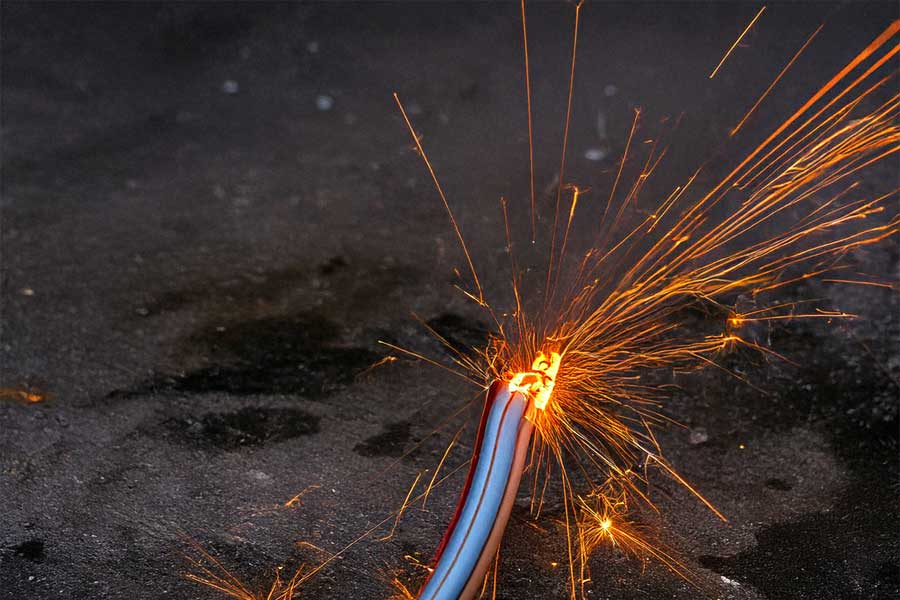
In our daily lives, we use many electrical devices without realizing it. In order for these devices to work smoothly, it is of great importance that electrical energy is transmitted safely. In addition to being the carrier of electrical energy, the cables that undertake this task also play a vital role in the safety of the electrical installation. However, the use of poor quality cables can pose serious risks. For this reason, Ülkü Kablo offers the safest cable solutions suitable for the purpose of use with our constantly developing production techniques and technology.
Risks That Poor Quality Cables Can Create:
- Fire Hazard: The materials used in the insulation of poor quality cables may not be sufficiently resistant to high temperatures or mechanical influences. This causes the wiring to overheat and short-circuit, increasing the risk of fire. Fires not only cause financial losses, but also threaten life safety.
- Electric Shock: Damage to the insulation of poor quality cables can cause electric current to leak out and cause electric shock. Electric shock is a serious risk that can lead to serious injury or even death.
- Power Outages: Poor quality cables can conduct electrical current in an irregular manner, causing frequent power outages. This leads to major problems, especially in places where there is a constant need for electricity, such as workplaces and hospitals.
- Equipment Damages: Poor quality cables can cause damage to electrical appliances. Sudden power surges or power outages can shorten the lifespan of sensitive electronics and increase repair costs.
- Energy Loss: Poor quality cables cause energy loss by consuming some of the electrical energy as heat. This not only increases your energy bills, but also harms the environment.
How Do We Recognize Poor Quality Cables?
- Insulation Quality: If there are cracks, fraying, or discoloration on the outer surface of the cables, it means that the insulation quality may be impaired.
- Flexibility: Poor quality cables may have lost their elasticity and become stiff.
- Odor: A burning smell coming from the cable may be an indication that the insulation has been damaged.
- Heating: If the cables heat up more than normal, it increases the risk of short circuits.
- Production Information: Cables that do not have manufacturer information on them or that cannot be read are of questionable reliability.
Conclusion:
The cables to be used in the electrical installation must be of high quality and reliable. The use of poor quality cables carries great risks in terms of both life safety and financial losses. For this reason, when choosing cables to be used in your electrical installation, you should definitely choose reliable brands and check whether they comply with the relevant standards.
Remember: Electrical work is a specialist subject. If you encounter any problems with your electrical installation, be sure to contact an electrician.
This text is for general informational purposes only. Always consult a specialist before performing any electrical installation.
